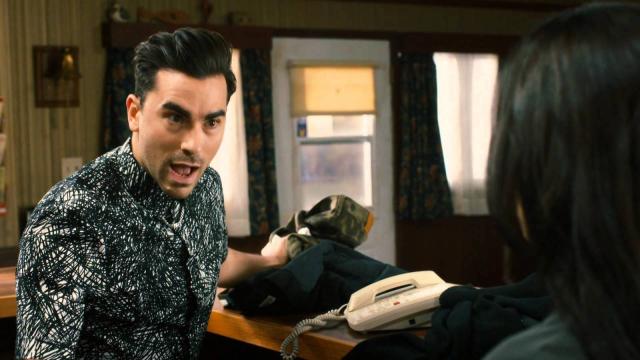Dan Levy is best known right now for his portrayal of David rose in the beloved hit Schitt’s Creek, about a once-rich family living in the town they bought as a joke. Levy is also the series’ showrunner and creator, and he has some advice for how to amp your creative talent.
In a new interview with GQ, found via Kara Cutruzzula’s Brass Ring Daily newsletter, Levy explained how he managed to produce such a successful television show right out of the gate.
Normally, I’m pretty sceptical of anyone who comes from an industry family commenting on the challenges of breaking into that exact industry. (Levy’s father is Eugene Levy, who also plays his dad, Johnny Rose on Schitt’s Creek.)
But Levy’s thoughts on how he transitioned from doing mostly MTV hosting gigs to having the skills for showrunning are pretty pertinent to anyone trying to develop an artistic voice. This is what he learned:
“A lot of people have tremendous fear about What if it’s not good? or What if I realise I’m not talented? But knowing what you don’t want to do—what you’re bad at—is just as important. That’s a door you can close in the journey of your life. And I think closing doors is just as important as opening them.”
While it might not have been as easy to get Schitt’s Creek made if David Levy were Rando McWhoever, Levy did go through the process of figuring out what he could really do by trying: Bombing auditions, facing agent and management rejections, working on his writing.
Trying and failing was part of the process and it’s a process that’s especially important in creative careers; few of them have a direct path. At times it feels like you should be doing everything, forever, until you collapse into a miserable heap.
Nope. Try it, and if it isn’t working there’s no need to be embarrassed about giving up on something you’re bad at. It’s getting you to what you’re good at.
Also, I’d recommend checking in with yourself about why you’re doggedly pursuing something that’s not working: are you seeking validation? What are you hoping to get out of success? Is this goal distracting you from other things you love?
Now, none of this means you should give up on the stuff you want. What Levy is saying is that removing ego from trial and error will help you get a lot more out of those trials and errors. And it might one day get you a hit TV show.

Comments